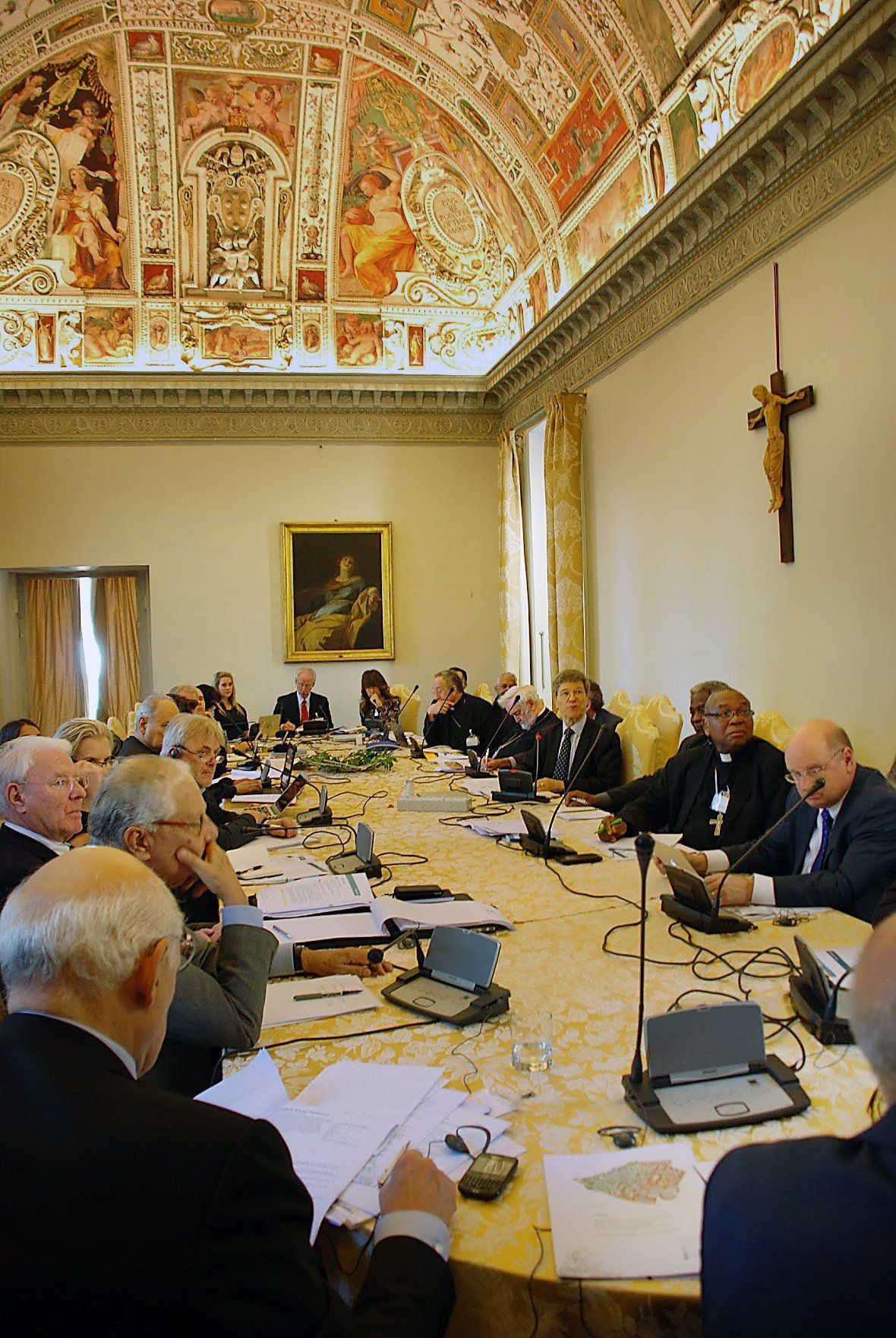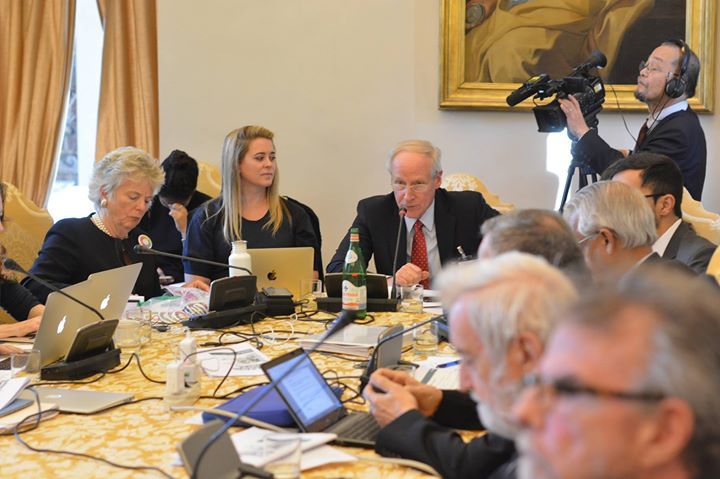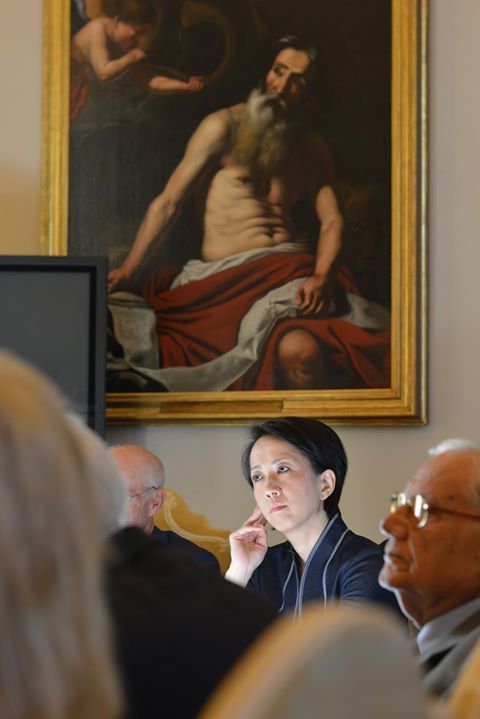The challenge of poverty
Although we live in a world of immense wealth—with global economic activity now exceeding $120 trillion a year—vast numbers of people are still subject to poverty and social exclusion. The Ethics in Action Working Group (EIAWG) reviewed the evidence on the nature of poverty in our world today (definitions, prevalence, distribution, causes, and remedies) and deliberated on the practical actions that can be taken by the global community, including the faith communities, to achieve SDG 1, the end of extreme poverty, and the SDGs aimed at meeting basic needs and ending various forms of social exclusion. Supporting information for our conclusions can be found in the document “Analytical Background on Global Poverty.”
Global actions to end extreme poverty
The EIAWG believes that the most effective way to end both extreme and relative poverty is to support all individuals, especially all children, to develop their capabilities to the maximum extent possible through universal access to education (SDG 4), health care (SDG 3), decent nutrition (SDG 2), and basic infrastructure including water, sanitation, and modern energy services (SDGs 6 and 7). All individuals should be enabled to enjoy a livelihood with human dignity and labor rights (SDG 8). Abusive labor practices such as child labor and all forms of modern slavery should be ended (in particular SDG 8.7). Discrimination and violence against girls and women and minority groups are important causes of poverty and should be ended (SDGs 5, 10, and 16).
Many of these steps require changes of regulations and perhaps of some social norms, but are not financially onerous to implement. Yet other measures (notably universal health coverage, universal access to primary and secondary education, and universal access to basic infrastructure including clean water, sanitation, and modern energy services) require increased investments by national and local governments, and such increased investments are often beyond the budgetary means of governments in the low-income countries. For this reason, global financial support directed towards the poor is a vital component of success in meeting the respective goals and targets. This point has been forcefully made, for example, by the recent International Commission on Financing Global Education Opportunity (the Brown Commission, 2016).
The magnitude of needed transfers is not large relative to the size of the world economy and the income of the high-income countries. Here is a simple way to see this. Consider a transfer of $1.90 per day (the global line of extreme poverty) from the high-income countries that is directed towards the 800 million poorest people. Such a transfer would amount to around $550 billion per year, or roughly 1 percent of the annual income of the high-income countries (currently estimated by the IMF to be around $51 trillion). In fact, the magnitude of the needed transfers to end extreme poverty is lower than $550 billion per year since the low-income countries are already part way towards the poverty line. A reasonable estimate of financial need is an annual transfer of around 0.7 percent of GDP of the high-income countries directed towards the low-income and lower-middle-income countries. This is the globally agreed toward for Official Development
Assistance (ODA). Actual ODA falls short of this globally agreed target, and currently stands at around 0.3 percent of the GDP of the high-income countries. The shortfall per year is therefore around 0.4 percent of high-income GDP, or a shortfall of around $200 billion per year. The needed transfers should generally be targeted towards the support of health (SDG 3), education (SDG 4), basic infrastructure (SDG 6, 7, 9),
and a social safety net for the disabled, the indigent, and the elderly non-working poor (SDG 1, 2).
Financial transfers to the poor
The Ethics in Action Working Group supports a combination of the following measures to ensure an effective and predictable transfer of resources from the rich countries to the poor countries so that these countries can achieve the SDGs to end poverty.
• Establish a Global Fund for Education to mobilize the incremental $40 billion needed each year to provide universal education to secondary level in all low-income countries.
• Divert up to 10 percent of the current global military spending—approximately $1,700 billion a year—to finance initiatives to reduce poverty
and exclusion. This could be called the “Isaiah fund” or the “Pope Paul VI fund.”
• Tax anonymous wealth held in tax havens at a rate of up to 1 percent, raising as much as $200 billion per year.
• Establish a billionaires’ Fund for the SDGs endowed by at least $200 billion.
• Urge all wealthy countries to honor the commitment to 0.7 percent of GDP in ODA.
Social Activism for the Poor
In addition to financial support, the poor need global solidarity to defend their basic human rights, including labor rights and environmental rights. The EIAWG supports the following measures to defend the rights of the poor:
• Intervene in areas like the Niger delta, to correct the social and environmental devastation brought about by the unjust practices of multinational corporations and governments.
• Support grassroots movements and unions so that the poor can become dignified agents of their own development.
• Recognize the ownership rights of slum dwellers and smallholders, allowing them access to vital public services.
• Change laws and regulations to emphasize a company’s duty to a broader array of stakeholders.
Education regarding moral standards and sustainable development
The EIAWG believes that global education in basic ethics (human rights, labor rights,
support for the poor, social solidarity, environmental sustainability) and sustainable
development can support a more peaceful, equitable and sustainable world and
promote the achievement of the SDGs. In this regard the EIAWG supports the
following measures:
• Reform educational curricula in schools to teach the ethics of sustainable development (a core component in all virtue traditions).
• Reform business and economics curricula to better incorporate ethics and pro-social values, in particular, social justice, solidarity towards one’s peers and future generations, as well as friendship and convivencia.
• Establish a youth movement for peer educational efforts on ethics and sustainable development.
Actions by the faith communities, ethicists and religious leaders
Global religious and secular ethical leaders should organize special and sustained efforts to promote the ideas of Laudato Si’, the Sustainable Development Goals, and the shared ethical underpinnings of the world’s religious traditions, such as human dignity, freedom and peace, in order to achieve sustainable and integral development. The EIAWG endorses the following steps:
• The preparation of an Ethics in Action handbook on sustainable development, building on Laudato Si’ and related texts, that emphasizes the shared ethical underpinnings of sustainable and integral human development in the major faiths, and the importance of a new “virtue ethics” to promote the fulfillment of the SDGs and the Paris Climate Agreement.
• Enlist high-level religious and other ethical leaders to play a leading role in restoring social and moral capital, including through participation in official processes such as the UN High-Level Political Forum and the G20.
• Empower and equip religious communities and congregations around the world for multi-religious action centered on the values of hospitality and share wellbeing and partnerships for Laudato Si’ and theSDGs.









